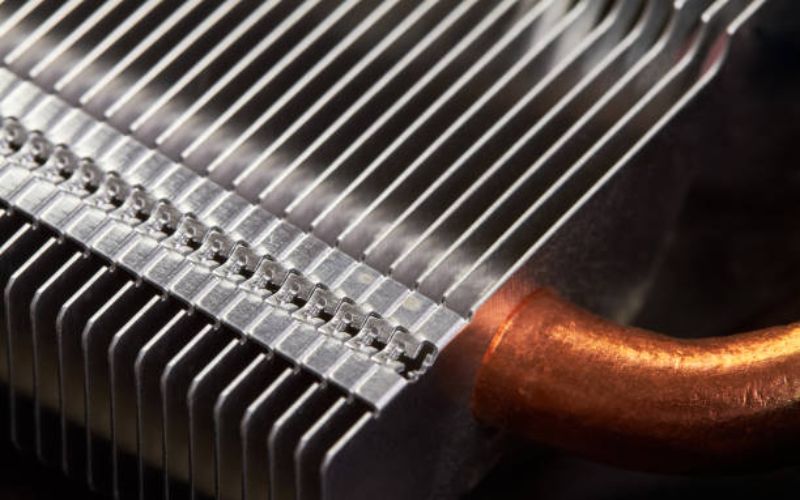Introduction
If you're upgrading your PC or building a new one, you may be wondering whether you should get an SSD with a heatsink. In this article, we'll explore the benefits and drawbacks of SSD heatsinks, and help you decide whether they're right for your needs.
What is an SSD heatsink?
Before we dive into the pros and cons of SSD heatsinks, let's define what they are. An SSD heatsink is a metal or plastic cover that attaches to the solid-state drive, providing additional cooling. It usually fits over the top of the SSD, and sometimes covers the sides as well. Some SSD heatsinks are built into a larger device, like a PC case or motherboard.
Benefits of SSD heatsinks
There are several benefits to using an SSD heatsink. First and foremost, it can help keep your SSD cool. If an SSD overheats, it can slow down or even fail. A heatsink helps dissipate heat away from the drive, ensuring it runs at an optimal temperature. Additionally, some SSDs have a tendency to throttle when they get too hot, meaning their performance is reduced. A heatsink can prevent this from happening, allowing the SSD to operate at its full potential.
Drawbacks of SSD heatsinks
While SSD heatsinks can be beneficial, they're not without their drawbacks. One major disadvantage is that they can add extra bulk to your PC. If you're building a compact system, this may be a deal-breaker. Additionally, SSD heatsinks can be difficult to install, particularly if you're not confident working inside your PC. Finally, SSD heatsinks can be expensive, adding to the overall cost of your build.
Do you need an SSD heatsink?
Whether you need an SSD heatsink depends on a few factors. First, consider the type of workload you'll be putting on your SSD. If you're a gamer or video editor, you may be pushing your SSD to its limits, causing it to heat up. If you're using your PC for more basic tasks like web browsing and email, an SSD heatsink may not be necessary. Additionally, consider the size of your case and how much space you have to work with. If you have a larger case, an SSD heatsink may not be an issue. But if space is tight, you may want to skip it.
Can you add an SSD heatsink later?
If you decide you want an SSD heatsink down the line, don't worry - it's usually not too difficult to install one. Many manufacturers sell aftermarket heatsinks that can be attached to your SSD. Just make sure to follow the instructions closely, and be careful not to damage any components when you're installing it.
Compatibility concerns
Before you buy an SSD heatsink, make sure it's compatible with your drive. Some SSDs may have non-standard measurements or mounting holes, making it difficult to find a heatsink that fits properly. Additionally, make sure your motherboard or case can accommodate the size and shape of the heatsink. Doing a bit of research beforehand can save you a headache later on.
Other cooling options
If you're concerned about keeping your SSD cool, there are other options to consider besides an SSD heatsink. One common approach is to use fans or liquid cooling to circulate air over all components. This can help keep your entire system cool, including the SSD. If you're only concerned about your SSD, you could also consider using thermal pads or a thermal adhesive to connect your SSD to the case or motherboard, which can help dissipate heat.
How much do SSD heatsinks cost?
SSD heatsinks can vary in price depending on the manufacturer and model. Some are as cheap as $10, while others can cost upwards of $50. Additionally, some heatsinks are sold as part of a larger cooling system, like a liquid cooling setup, which can be much more expensive.
Final thoughts
So, should you get an SSD with a heatsink? Ultimately, the decision comes down to your specific needs and circumstances. If you're pushing your SSD to its limits, and have the space and budget to accommodate a heatsink, it may be a wise investment. But if you're using your PC for more basic tasks, or have limited space or budget, an SSD heatsink may not be necessary. Whatever you decide, make sure to do your research and choose a reputable brand that will deliver the performance you need.

